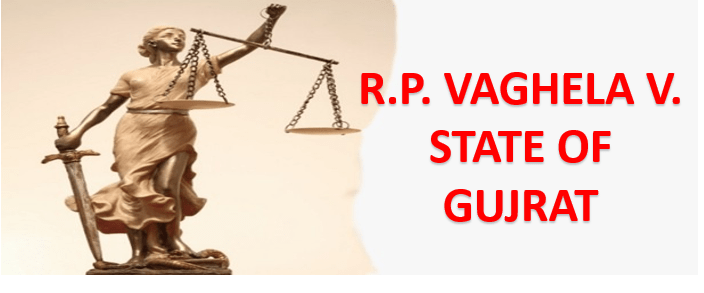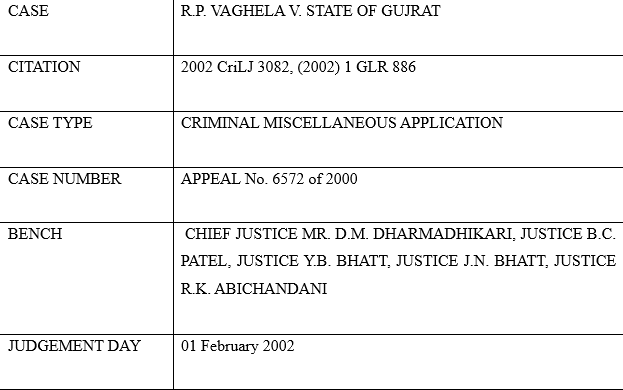

INTRODUCTION:
Contempt of court is a kind of crime of being disobedient to or disrespectful towards the court of law and its officers by the form of their behavior that opposes or defies the authority, administration of justice, and dignity of the court. There are mainly two categories that have been provided in contempt of court which are being disrespectful in the courtroom or not maintaining professionalism and intentionally not obeying the order of the court. The contempt of court is regulated by the “The Contempt of Courts Act,1971”, in which section 2 of the code is of two kinds that is civil contempt and criminal contempt. The meaning of civil contempt is intentionally disrespectful of any judgment or a decree of a court or intentional breach of any undertaking provided to a court. It is mentioned in section 2(b) of the code. On the other hand, the meaning of criminal contempt is the publication of any matter which either scandalizes or lowers the authority of the judgment or obstructs the proceeding or through any medium interference in the administration of justice. It is mentioned in section 2(c) of the code.
FACTS OF THE CASE:
The Joint District and Addl. Sessions Judge, Bhavnagar addressed a letter on 11th February 2000, directly to the Registrar of the Apex Court of India and also sent it to the Registrar of the concerned High Court for communicating the same matter to take cognizance of the contempt which has been alleged to been committed to the Supreme Court in the course of criminal proceedings in his court. The facts that have been provided before the supreme court and the High Court are in Sessions Case No. 220 of 1998. The name of the accused is Bharat Kumar Amrutlal Maniyar was jointly tried in the trial for the offense under Section 302 IPC with a co-accused, both have been produced before the court. In the report of the Joint District and Sessions Judge, inside the courtroom, he saw the Constable carrying a handcuff in his hand then he questioned the both accused person and Constable Samant Bhai Lakhabhai Chudasama (Buckle No. 10). After questioning them thoroughly, the trial Judge prepared a report and had taken the signatures of the accused, his representative lawyer, the concerned Constable, and the Public Prosecutor. The Constable further admitted that he had brought the accused person handcuffed from jail to the court. The trial judge further observed that this is a direct violation of the direction provided by the supreme court as the accused had been handcuffed and presented before the trial without permission of the trial judge or the magistrate. Upon this matter the learned trial judge has reported before the supreme court and, in his report, he has mentioned all the facts observed by him and he has requested to issue a notice to these concerned parties that are State of Gujarat Notice to be served to the Secretary, Home Department, Sachivalaya, GANDHINAGAR, Gujarat, and to the Director General of Police Gujarat State, AHMEDABAD and to the District Superintendent of Police BHAVNAGAR, Gujarat. After that the supreme court has taken cognizance of this case and the Bench of five senior Judges of this Court has been constituted because this case is related to the question of law.
ISSUE OF THE CASE:
1. Whether the High Court can take cognizance in the matter of contempt proceedings or does only the Supreme Court have the power to take cognizance?
2. Whether in this case any contempt has been committed?
3. whether the proceedings have Benn initiated under the limitation of Section 20 of the Contempt of Courts Act, 1971?
CONTENTION OF THE PARTIES:
Senior Advocate Shri Sharad B. Vakil as Amicus Curiae for the situation and has committed his entire time to contend the case at different stages at extraordinary length and has given us important help and decisions for reaching an equitable resolution. The question argued before us for several days by the Counsel appearing was whether the Supreme Court would only be liable for contempt if it violated the Supreme Court’s declarations of law or if this High Court could also take cognizance of the same because the contempt is committed within its jurisdiction. It is abundantly clear that any violation of the Supreme Court’s instructions regarding handcuffing will be dealt with “summarily under the Contempt of Courts Act,” as stated. It is also necessary to mention the extremely helpful assistance provided by Senior Advocate Shri Girish Patel through his written submissions, which were of tremendous help to us in selecting the reference. Due to his intervention through Miscellaneous Criminal Application No., we granted him permission to submit Written Submissions. Miscellaneous Criminal Application No. 6831 of 2001 on behalf of the Centre for Social Justice (Janvikas). 6832 of 2001 on behalf of the Lok Adhikar Sangh was opposed by the complainants, and they were right. Because this is not a case in the public interest and is a contempt proceeding, we were unable to allow any other parties to speak with the Court about the issue of contempt. As a result, we disapprove of the two Miscellaneous Criminal Application Numbers. 6831 and 6832 the two of 2001 looking for intercession and for joining as a party to the procedures. However, we are indebted to Senior Counsel Shri Girish Patel for providing us with assistance through his Written Submissions. Shri S. N. Shelat, Advocate General, Shri Kamal B. Trivedi, Additional Advocate General, and Shri Arun D. Oza, Public Prosecutor, addressed the Court in a most objective and dispassionate manner, treating the case as one of general judicial administration of the State, are also acknowledged with gratitude. It is encouraging that Senior Counsel Shri Prakash M. Thakkar, Senior Counsel Shri R. J. Oza, and Senior Counsel Shri H. S. Tolia, who appeared on behalf of the respondents, adopted a very objective attitude in the case and presented the issue from every legal angle and with accurate facts. They offered legal arguments and defenses on behalf of the suspects, but they also offered unconditional apologies, as documented in their affidavits. Their respect for the Court can be seen in this.
JUDGEMENT:
The first issue resolved by this Larger Bench is whether or not this High Court has the authority to investigate allegations of contempt and, if so, to impose punishment on the accused. Because it involves both the question of fundamental rights under Article 21 and the Court’s power to hold people in contempt, the issue is of general significance. Without precedent for the instance of Sunil Batra Delhi Organization, AIR 1978 SC 1675, the High Court held: The Hon’ble Competent Authority was consulted on the aforementioned matter. The headings contained in Sections 16 to 21 of the judgment in the Residents for A majority rule government case (supra) were given by the High Court to guarantee that the bearings given before by the two Bigger Seat choices were followed. As a result, the Supreme Court’s rulings in Citizens for Democracy (supra) are consistent with those in the Batra and Shukla (supra) cases, and its instructions must be interpreted in light of those earlier decisions in a manner that is consistent with the pronouncements of the Larger Benches. Because of the foregoing, we are unable to establish that the aforementioned Constable, who is the alleged perpetrator before us, has shown any disdain that merits retribution. As a consequence of this, the respondents’ contempt notices are canceled. For the reasons given hereinabove, this Court will have no purview to start scorn procedures on the ground that there has been a break of headings given by Hon’ble the High Court and the High Court alone can start such procedures in the activity of its disdain ward. In addition, with regard to the extended question that has been argued, namely, whether this Court ought to initiate proceedings under Section 10 for contempt of the subordinate Court on that count because respondent No. 1 has violated the subordinate Court’s authority by failing to obtain its permission, thereby committing “criminal contempt” of the subordinate Court. 4-As far as the Constable is concerned, Section 20 of the aforementioned Act clearly prohibits the initiation of the proceedings against him based on the notice that was served on him for the first time on September 9, 2001. Regardless, he appears to have acted under a genuine conviction that the denounced was rough and was probably going to get away. As a result, by not seeking its prior permission, he has not disobeyed the Subordinate Court. Regarding the other respondents, it is determined that they have not committed any “criminal contempt” of the subordinate Court based on what they have stated in their affidavits-in-reply, and there is no warrant for taking any action against them under Section 10 of the aforementioned Act on that count. As a result, the respondents’ contempt notices are discharged and the contempt proceedings against them are hereby dismissed. The application stands discarded likewise.
CONCLUSION:
The code of criminal procedure has provided a provision under chapter V, which is “Arrest of persons”. According to section 49 of the code of criminal procedure, no unnecessary restraint is required means the arrested person shall not be restrained more than necessary to prevent his escape. In this case before the pronouncement of the judgment the Supreme Court seeks the reasoning behind the restraint that has been imposed by the police officers to the arrested person. If the police officer has been imposing any restraint than required then they must provide their reasoning behind it and in writing also if demanded before the competent authority. Further, the supreme court has mentioned his power that has been provided by Article 141 and Article 144 of the Indian constitution which states that the law declared by the supreme court to be binding on all the courts and the civil and judicial authorities to act in aid of the supreme court respectively. Contempt can be also done by the police officers or even by the magistrate in his own court or before any other court under section 16 of the Contempt of Court Act,1971.
WRITTEN BY -RITTI RAMYA, LAW COLLEGE DEHRADUN, DEHRADUN (VIII SEMESTER)




0 Comments